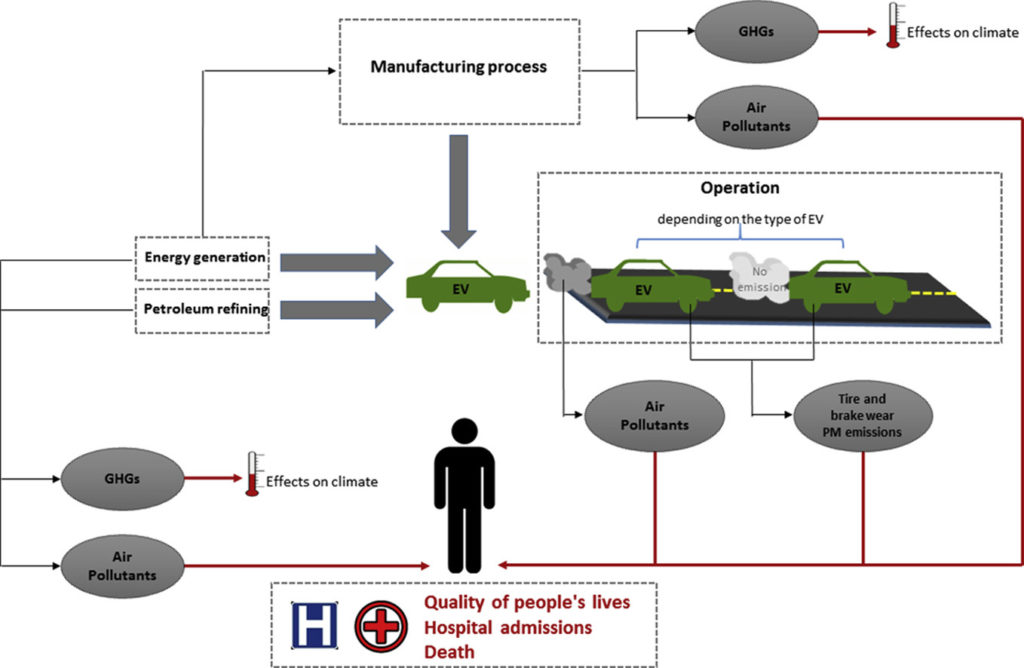In addition to reduced greenhouse gas (GHG) emissions from road transport, [1] electric vehicles offer many health benefits to society through reductions in human exposure to air and noise pollution.
Health benefits for society
The health benefits of electric vehicles include the reduction of Internal Combustion Engine Vehicle (ICEV) GHG emissions and air pollutants such as carbon dioxide (CO2), nitrogen oxides (NOx) and most of the particulate matter (PM) from the air. [1] For more information, refer to account for vehicle emissions.
In addition, the reduced traffic noise from electric vehicles have significant public health advantages including improved mental health and wellbeing for the community. The reduced GHG emissions leads to reduced climate impacts. [2]
Health benefits for employees
Electric vehicles can lead to an improved driver experience and reduced driver fatigue [3] as the vehicles are much quieter and without fumes. The smoother battery engine removes the noise, vibration and heat generated by petrol and diesel-powered engines. [4]
Electric vehicles are easy to operate and offer a low-effort driving experience. The vehicles’ inherent quietness while driving reduces stress in traffic – an attribute that most do not fully appreciate until they have experienced it. [5]
Factors determining health benefits
The positive benefits of electric vehicles for reducing GHG emissions and human exposure depends on factors including:
- the type, make and model of electric vehicles
- source of energy generation
- driving conditions
- charging patterns
- availability of charging infrastructure
- government policies
- climate of a region [6].

Source: Requia, W. J. et al, 2018 [6]

